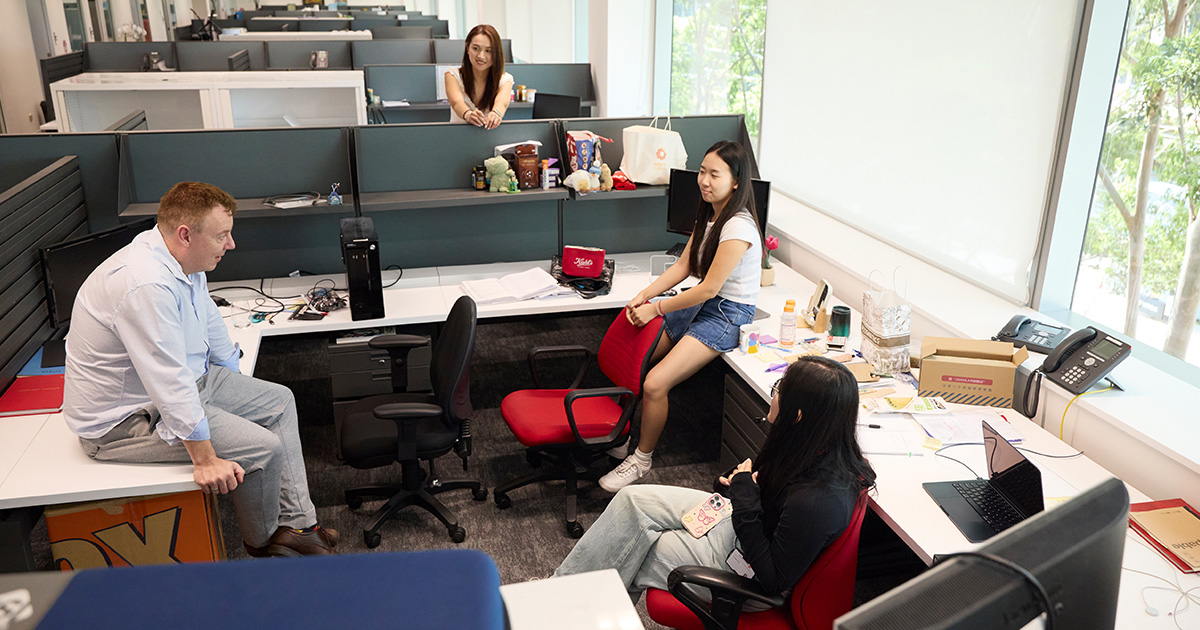The Woolcock Institute of Medical Research

Is a greener planet better for our health?
As the world confronts the challenges of a changing climate, environmental initiatives have focussed on reducing use of petrochemicals and building a circular economy that encourages us all to reduce, recycle and reuse.
Will these initiatives present new problems for the environment and for human health? That’s a question that was posed by Distinguished Professor Brian Oliver, research leader of the Woolcock Institute of Medical Research’s Respiratory Cellular and Molecular Biology group, during a recent discussion with his colleagues.
The role of scientists, he says, is to look dispassionately at the science behind climate change and environmental initiatives and present the evidence to decision makers, to industry and to consumers.
ARE EVs THE ANSWER?
A case in point is electric vehicles – there are arguments both for and against.
“Depending on which side of the fence you're on, you can say ‘they're great for the environment because there are no petrochemicals being burned every day’ or you can say, ‘look, they're really harmful for the environment because the ones we have right now actually produce more pollutants per kilometre travelled than a petrol car if the electricity used to charge them comes from coal-fired power stations’. They’re also heavier which means increased brake and tyre wear which release metals and microplastics into our air, and because of the increased weight they do more damage to our roads, so there’s a cost in that.”
“There are definitely things that need to change to protect our environment, but I think we are probably a few years away from having the alternative technologies that will be super impactful. We need to test these new technologies and ensure they don’t present new or different risks for the planet or for human health.”
Want to stay up to date with our research on sleep and respiratory conditions?
Sign up to our quarterly newsletter
ARE NEW PLASTICS FANTASTIC?
The same principle applies to plastic, he says.
“Plastics are obviously an environmental no-no but the good thing about plastics is that in a formed, intact product they’re not actually dangerous for human health. Plastics are stable, they’re not sticky, things don’t easily adhere to them, people aren’t allergic to them.”
“However, this stability causes a problem at they are persistent in the environment and mechanical degradation causes the release of microplastics.”
As we increase reuse and recycling of plastics, though, they may pose risks for human health. We know that chemicals, like BPAs, which can leach from plastics bottles affect how hormones act in the body and may cause cancer, affect brain development in the womb or lead to infertility. Microplastics released during recycling may be harmful to workers’ respiratory health.
“We’re at the start of our understanding of microplastics but it could be that certain types of microplastics or certain particle shapes or sizes are much more dangerous than others – we know that with carbon nanotubes the shape of the particles can dictate the cellular response. Biodegradable plastics present their own issues, it can be that sunlight changes the nature of the plastic resulting in microplastics which absorb heavy metals more readily. So it might be that the biodegradable plastics we are now producing in order to reduce landfill are actually much more of a health risk.”
We’re now making plastic bags and containers from plant and animal waste, but they’re still plastics. We’re recycling polyester fabrics, reforming them into new polymers, which apart from the risks of exposure to plastic particulates for workers in those industries may result in fabrics which are more fragile or more likely to be carriers of things that we don’t want to be exposed to.
NEW INITIATIVES, NEW DANGERS?
That’s where science comes in.
“Ideally, we’d be better off without single-use anything – clothing, bags, packaging, bottles – but that’s probably unrealistic in our consumer society. What science must do is test these new initiatives (not just plastics, but rechargeable batteries for phones and EVs, and green energy solutions) to ensure we’re not introducing new dangers for our planet, for workers in these industries or for consumers.”










